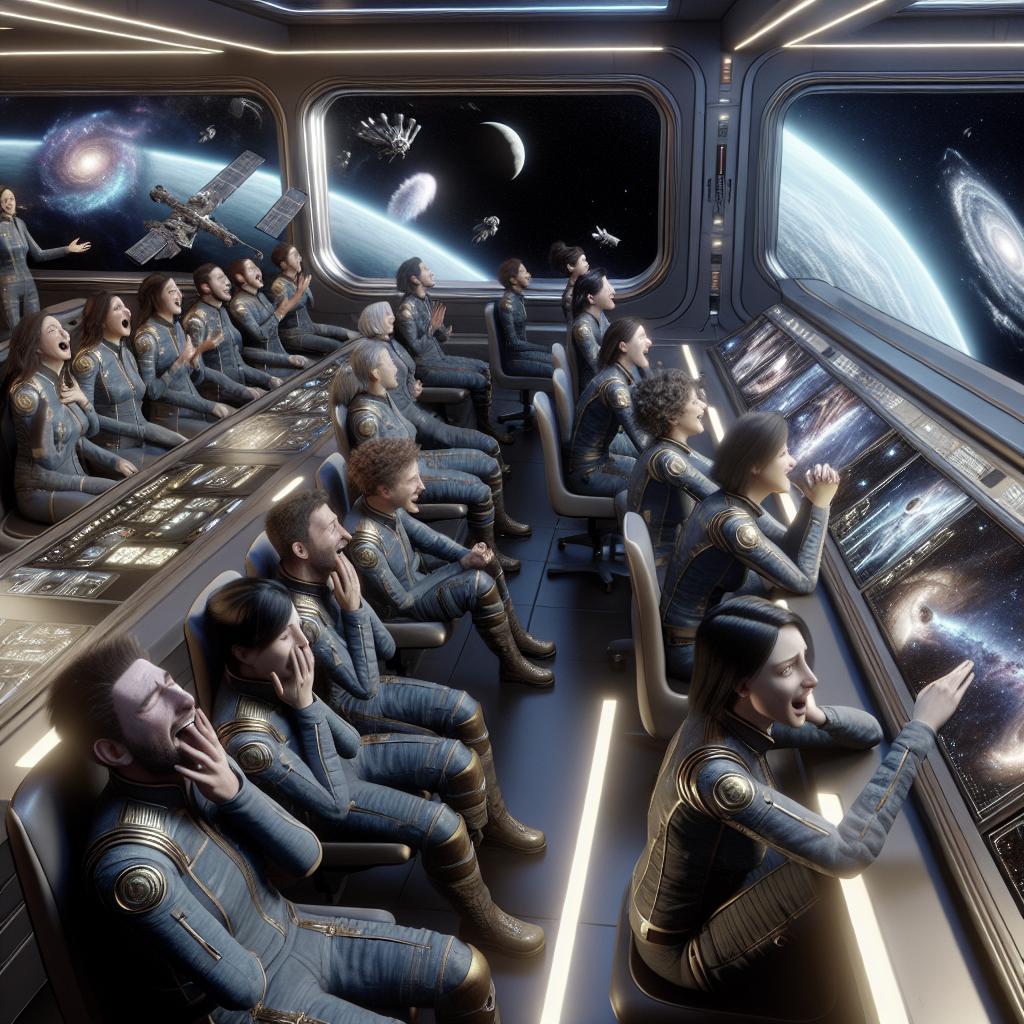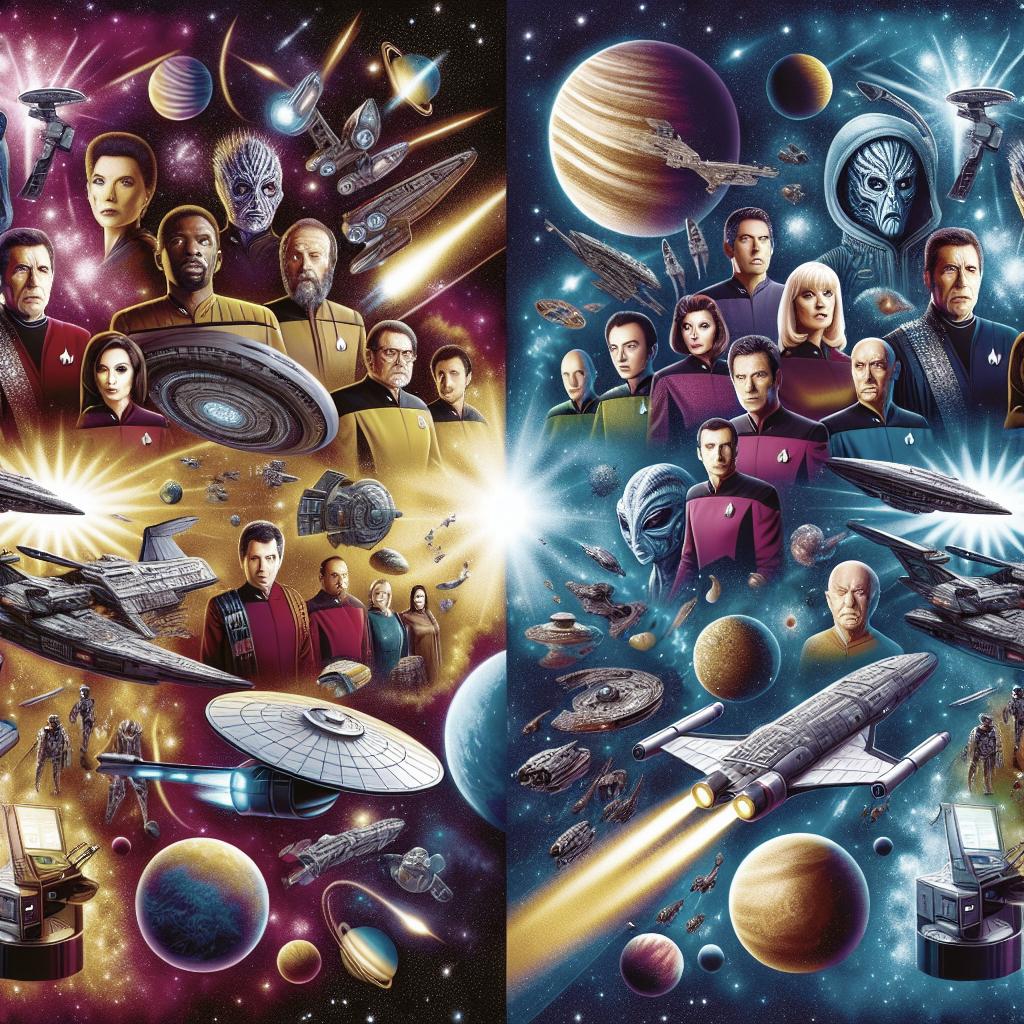“`html
Star Trek’s Most Emotional Moments
Star Trek has transcended its role as a science fiction television show to influence real-world culture and inspire generations. Known for its exploration of complex social themes, brilliantly woven narratives, and adept character development, the series has provided viewers with countless emotional moments. From heroic sacrifices to unexpected reunions and poignant farewells, Star Trek has taken its audience on a profound emotional journey. In this article, we delve into some of the most touching and heart-wrenching moments from the Star Trek universe that remind us what it truly means to be human – or, at least, beings capable of great empathy.
Related
One of the earliest emotional high points in Star Trek history occurs in “The City on the Edge of Forever,” an original series episode that exemplifies the series’ ability to meld science fiction with deep, emotional storytelling. Captain Kirk’s unavoidable decision, which grows out of his love for Edith Keeler and his duty to history, forces him to grapple with the profound consequences of time travel. Here, Star Trek challenges viewers to consider the weight of choices against the backdrop of greater good versus personal emotions.
Another powerful moment from The Next Generation series is when Jean-Luc Picard, after being assimilated by the Borg, returns to the Earth family vineyard in “Family.” It reveals Picard’s vulnerability and the aftermath of his trauma from being used against his will. This episode resonates on a personal level, as it invites us to reflect on our own struggles and the shared human need for healing and reconciliation, resonating across space and time.
Trending Now
A particularly memorable episode from Deep Space Nine is “The Visitor.” This emotionally charged story explores the profound bond between Captain Benjamin Sisko and his son Jake. As Sisko becomes trapped in a temporal loop, Jake spends his life seeking to free his father, showcasing the deep-seated love and sacrifice that defines familial relationships. The remarkable storytelling highlights the duality of tragedy and hope, emphasizing the relentless human spirit to mend familial ties despite insurmountable odds.
In a similar vein, Voyager’s “Latent Image” explores the Doctor’s struggle with his programming and the ethical dilemmas posed by artificial intelligence. His emotional turmoil and internal conflict as he grapples with human-like guilt and decision-making evoke existential questions about identity and consciousness. This episode challenges us to rethink the boundaries of sentience and what it means for an artificial life-form to experience a sense of morality.
Related
Star Trek: Enterprise delves into emotion and sacrifice during the Xindi arc, particularly in the episode “Similitude.” Here, Trip Tucker’s clone is created as a way to save his life, only for the clone, Sim, to form an identity of his own. Sim’s acceptance of his inevitable fate to save Trip’s life provides a poignant narrative of selflessness and the philosophical questions of what constitutes true existence.
The darkness of emotion is exquisitely depicted in “Tuvix,” a Voyager episode that examines the ethics of life and death when Tuvok and Neelix merge into a single being. The intense moral and emotional debates presented through Captain Janeway’s final decision to restore Tuvok and Neelix at Tuvix’s expense challenge the viewer to balance emotion with ethical responsibility. This dialogue remains one of the most debated moments among fans, as it gracefully portrays Star Trek’s strength in navigating complex moral landscapes.
Trending Now
“The Inner Light” from The Next Generation has remained an iconic episode due to its emotionally resonant story. Here, Captain Picard lives an entire lifetime on a long-dead planet, with each moment shaping him profoundly, leaving an indelible mark on his real-life identity. This glimpse into a life Picard never led transcends narrative boundaries, creating a poignant portrayal of legacy, memory, and humanity.
“For the Cause” and “For the Uniform” in Deep Space Nine highlight Commander Eddington’s betrayal and exploration into themes of loyalty and personal integrity. Through Sisko’s pursuit and ultimate confrontation with Eddington, the narrative unpacks deep-seated emotions of disillusionment and the complexities of moral allegiances, leaving viewers questioning the true nature of heroism.
Final Thoughts
| Episode | Series | Emotional Theme |
|---|---|---|
| The City on the Edge of Forever | Original Series | Choices and Sacrifice |
| Family | The Next Generation | Healing and Reconciliation |
| The Visitor | Deep Space Nine | Love and Sacrifice |
| Latent Image | Voyager | Identity and Ethics |
| Similitude | Enterprise | Selflessness and Existence |
| Tuvix | Voyager | Life and Moral Responsibility |
| The Inner Light | The Next Generation | Legacy and Humanity |
| For the Cause/For the Uniform | Deep Space Nine | Loyalty and Integrity |
“`


